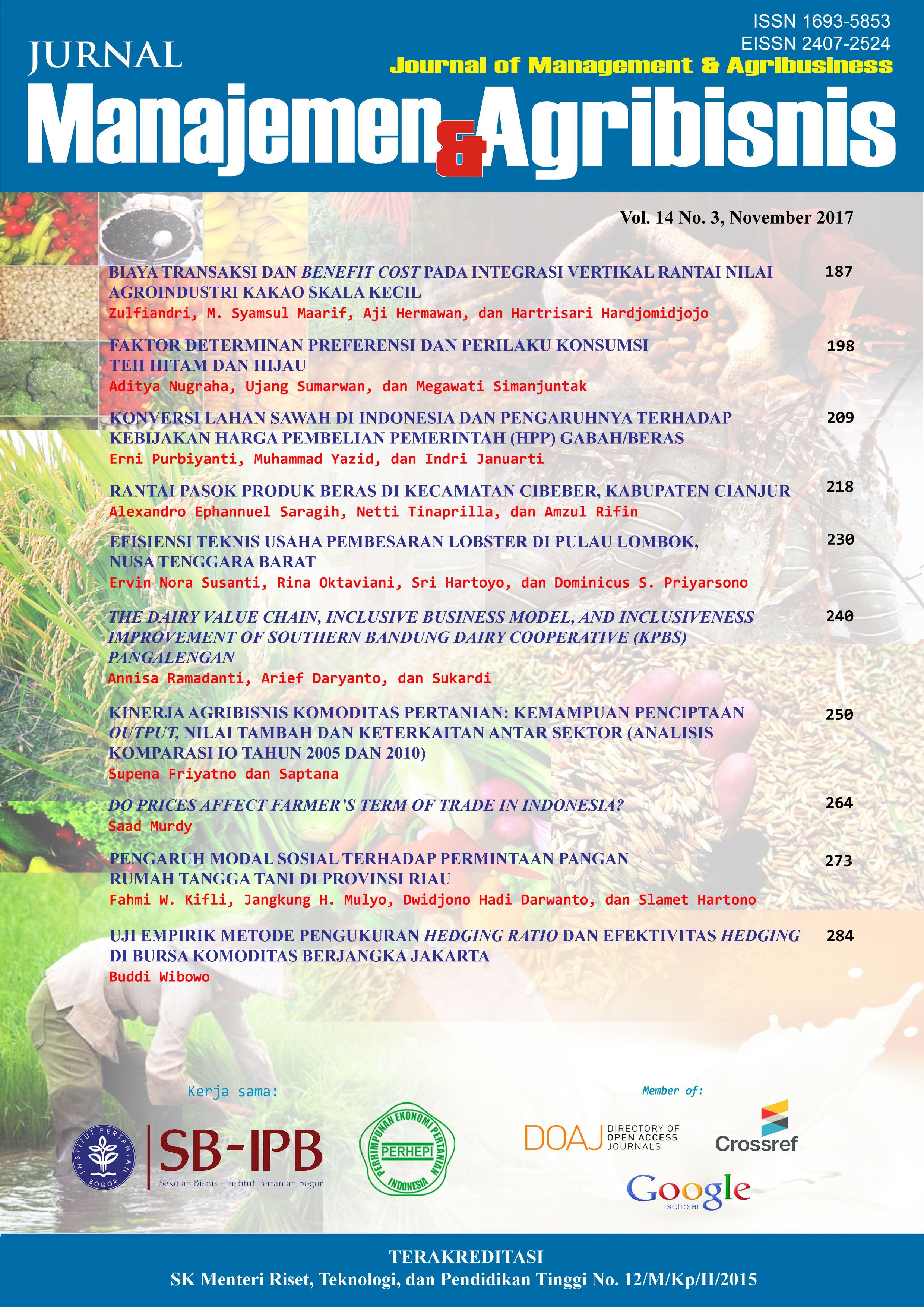Efisiensi Teknis Usaha Pembesaran Lobster di Pulau Lombok, Nusa Tenggara Barat
Abstract
One aquaculture commodity that has a high economic value and potential to be developed in Indonesia is lobster. Lombok Island is a considerable lobster-producing area that has a great potential for the future development. However, lobster farming in this island lacks in productivity due to the management factors. Therefore, to achieve a sustainable development, the lobster farming needs a number of efforts to improve its productivity and technical efficiency. This study aims to: (1) analyze the influencing factors to the production of lobster farming and (2) analyze the level of technical efficiency and affecting factors on the technical inefficiency of lobster farming. The primary data were collected through surveys of 106 lobster - farming households. The stochastic frontier production function with Maximum Likelihood Estimator (MLE) method was used to analyze the efficiency of the cultivation system. The results suggested that most of the farmers are technically efficient with the average of the technical efficiency level of 0.91. The production inputs that have significant effects include the quantities of seed and feed and culture period. The technical inefficiency was influenced by the farmers’ age, experience, education and perceptions on sustainability of their farming.
Keywords: technical efficiency, lobster farming, stochastic frontier production function, Cobb-Douglas, MLE
Authors
Authors who publish with this journal agree to the following terms:
- Authors retain copyright and grant the journal right of first publication with the work simultaneously licensed under a Creative Commons Attribution License that allows others to share the work with an acknowledgement of the work's authorship and initial publication in this journal.
- Authors are able to enter into separate, additional contractual arrangements for the non-exclusive distribution of the journal's published version of the work (e.g., post it to an institutional repository or publish it in a book), with an acknowledgement of its initial publication in this journal.
- Authors are permitted and encouraged to post their work online (e.g., in institutional repositories or on their website) prior to and during the submission process, as it can lead to productive exchanges, as well as earlier and greater citation of published work (See The Effect of Open Access).

